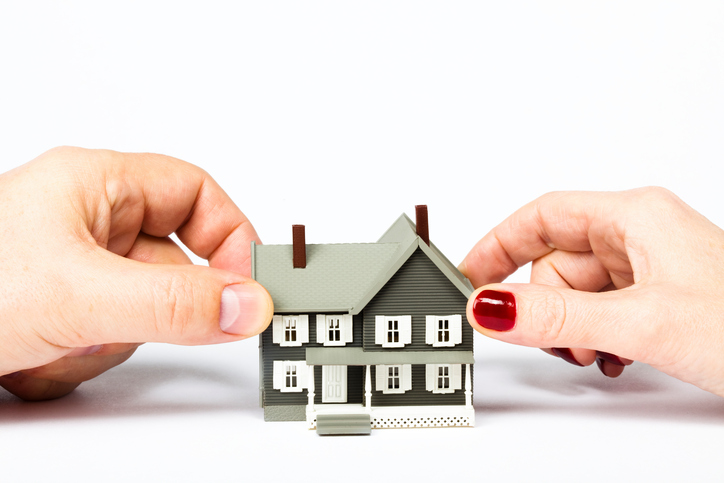When divorcing, you and your partner will inevitably need to decide how the finances will be divided including what happens with the family home. This can be an incredibly difficult decision to agree upon as usually this will be the asset of the most value.
Legal Right to the Property
Generally if you have been married for a significant amount of time, both parties will have an equal share in the property regardless of whether the property is registered in your joint names or in the sole name of one party.
Even if the property is registered in your sole name or if it is a property you purchased prior to the marriage, if it has been the marital home, it does not mean that you have 100% equity in the property.
You will therefore need to either agree between yourselves how to deal with the family home but in the absence of agreement, the Court will decide.
How to decide what happens to the Property
There is a variety of options on reaching a decision as to what should happen to the house in a divorce settlement which can include:
- Sell the property and divide the equity as agreed; or
- One party stays in the property and buys the other party out; or
- One party stays in the property for a short period of time with a view to selling the property in the near future when the agreed equity would be spilt; or
- The property’s value is transferred into one party’s name, who then lives in the property permanently; the other party receives alternative assets of a similar value; or
- In less common cases, one party will remain in the property but the other party retains their interest and will receive their equity when the home is sold at a much later date (known as a Mesher Order)
The agreement that you reach with the other party can be formalised into a consent order which your solicitor will file at court for approval.
If you cannot agree what should happen to the family home on divorce both parties should attend mediation to try to narrow the issues and/or reach an agreement.
The last resort if agreement cannot be reached through mediation and/or discussions, will be to commence court proceedings.
Factors that influence the Court’s decision?
Children
One of the most important things that will influence the court’s decision is whether or not the parties have children. This is because the children’s needs are of most importance; this is in order to try to limit the disruption on their lives as much as possible.
If you have children the court may rule that the primary care-giver should remain in the property, along with the children. At the same time the court will make an order as to how to deal with the other party’s share in the property which could be one of the few ways mentioned above.
Other factors
Where you do not have children or the children no longer live at home, the court will consider other factors such as:
- Length of marriage or civil partnership;
- Your ages;
- Standard of living;
- Ability to earn a wage;
- Ability to obtain a mortgage and make repayments for the same; and
- Roles the parties played in the marriage.
Again the court will take all factors into account and can make a variety of orders, some similar to above
- One party remains in the property and buys the other party out;
- One party remains in the property and the other is awarded alternative assets;
- One party is entitled to remain living in the property for a specified amount of time; and
- The property is transferred to the name of the person remaining in the property but the other party keeps an interest in the property.
The court’s decision will be recorded in a court order which means that it is legally binding. So in the event that there is a dispute over the marital home in your divorce, it is incredibly important to seek legal advice.
A qualified family law solicitor at Fitz Solicitors can provide you with the advice you need in relation to divorce and dispute resolution.
If you would like an appointment to discuss this further, please do not hesitate to call us on 01753 592000.

